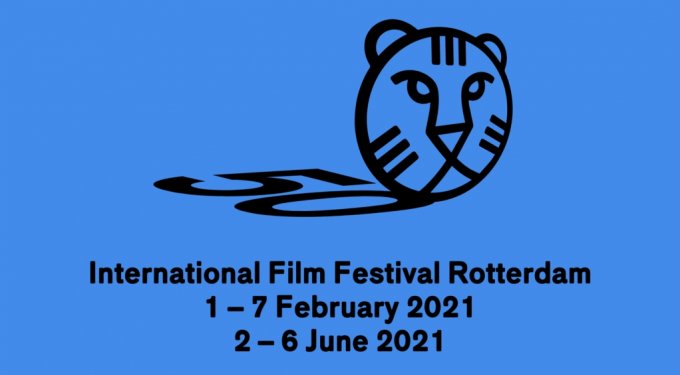The 50th edition of the International Film Festival Rotterdam (IFFR) had its final day of screenings on the 7th February. Of course, the organization had imagined the anniversary of the IFFR to be an unforgettable festive live event. The Covid-19 pandemic changed all that. The festival has managed however to pull off an equally successful event online with the Indian film ‘Pebbles’ picking up the main award of the festival, the IFFR Tiger Award. To date IFFR does not have an Ecumenical Jury to grant an award. Members of the Dutch branch of SIGNIS/INTERFILM ‘Het Filmgesprek’ (formerly known as KFA Filmbeschouwing) have visited IFFR from its very beginning. Very often their programming of the annual Day of the Inspirational Film was heavily influenced by the selection of the IFFR.
I was able to watch a small selection from the many screenings that were offered online and published brief reviews for social media in Dutch. I am happy to share these in English with our international film friends through the media of InterFilm. You will find them in my order of preference, guided by the criteria of the ecumenical award.
Rolf Deen, board member Het Filmgesprek (The Netherlands)
Pebbles (Vinothraj P.S, India 2021)
‘Arid’ is not only the word for the conditions under which the villagers in the Indian movie ‘Pebbles’ are forced to live but also for the images by which director Vinothraj P.S tells u his award-winning story. Unlike the usually ultra-dynamic mainstream Bollywood scenario, this film takes us through the events in a meditative pace. ‘Pebbles’ shows us the consequences for a schoolboy of domestic violence and subsequent separation of his parents. As the IFFR Tiger Award jury reports says: “The result is a lesson in pure cinema, captivating us with its beauty and humour, in spite of its grim subject.”
Dear Comrades (Andrei Konchalovsky, Russia 2020)
In the Soviet workers’ paradise, crimes against humanity were also committed under Khrushchev. The Russian film ‘Dear Comrades’ tells the story from the point of view of a local party official. The crimes by the KGB were covered up under a thick layer of asphalt and the dead disappeared into anonymous graves. The party official comes to a cynical realization with a shock, which is expressed in the film by a KGB agent: “That we live under socialism is also a state secret.” ‘Dear Comrades’ is a gripping historical drama based on facts. The production of this film by itself is a sign of hope because the regime’s frantic attempts to erase the facts prove to have been in vain. 59 years later they can be witnessed in theaters all over the world now.
Shorta (Louis Hviid, Denmark 2020)
“I can’t breathe” has long since ceased to be just the death cry of an individual victim of police brutality, whose name in the Danish film “Shorta” (Arabic for cop), is Talib Ben Hassi. It is the cry for help of an entire generation of residents of deprived neighborhoods whose lives apparently do not matter. This thriller shows in a very violent way what happens when things get completely out of hand. Director Frederik Louis Hviid and screenwriter Anders Ølholm seem to be saying with their feature debut: and the police owe it mostly to themselves.
Sweat (Magnus von Horn, Poland 2020)
If your depiction of hell is in need of an update the Polish film ‘Sweat’ will provide you with the imagery showing you the life of a fitness guru/social media influencer Sylwia. The strange thing is that everyone around Sylwia thinks she can deliver them a piece of heaven. Unfortunately, the plot of the film doesn’t really get beyond the cliché of the sad clown behind the smiling mask, now in the appearance of a successful young woman who comes to the obvious realization that success isn’t everything in life. Why her introduction to this insight requires the head of her stalker to be beaten to a pulp doesn’t really make sense.
Feast (Tim Leyendekker, Netherlands 2020)
The film “Feast” by Dutch filmmaker Tim Leyendekker premiered in Rotterdam. The film asks philosophical questions taken from from Plato’s Symposion about the motives of the three main suspects in the notorious 2005 Groningen HIV case. The three men allegedly deliberately infected visitors to sex parties they organized with HIV after they drugged them by putting GHB in their beer. And wouldn’t you like to know: in God’s name, why? Or, for example: how can the main suspect reconcile his work in health care and the intentional infection of sex partners in his private life? ‘Feast’, however, has become more of a podcast than a movie. With closed eyes, everything is just as comprehensible and in some ways even more so than with eyes open. The only images that have any real cinematic value are those where we see the victims lying forlorn, abandoned on the side of the road, in a bus shelter or at a river beach while passersby tellingly literally pass them by. Let’s hope for a remake of ‘Feast’ but this time in the form of a movie.


